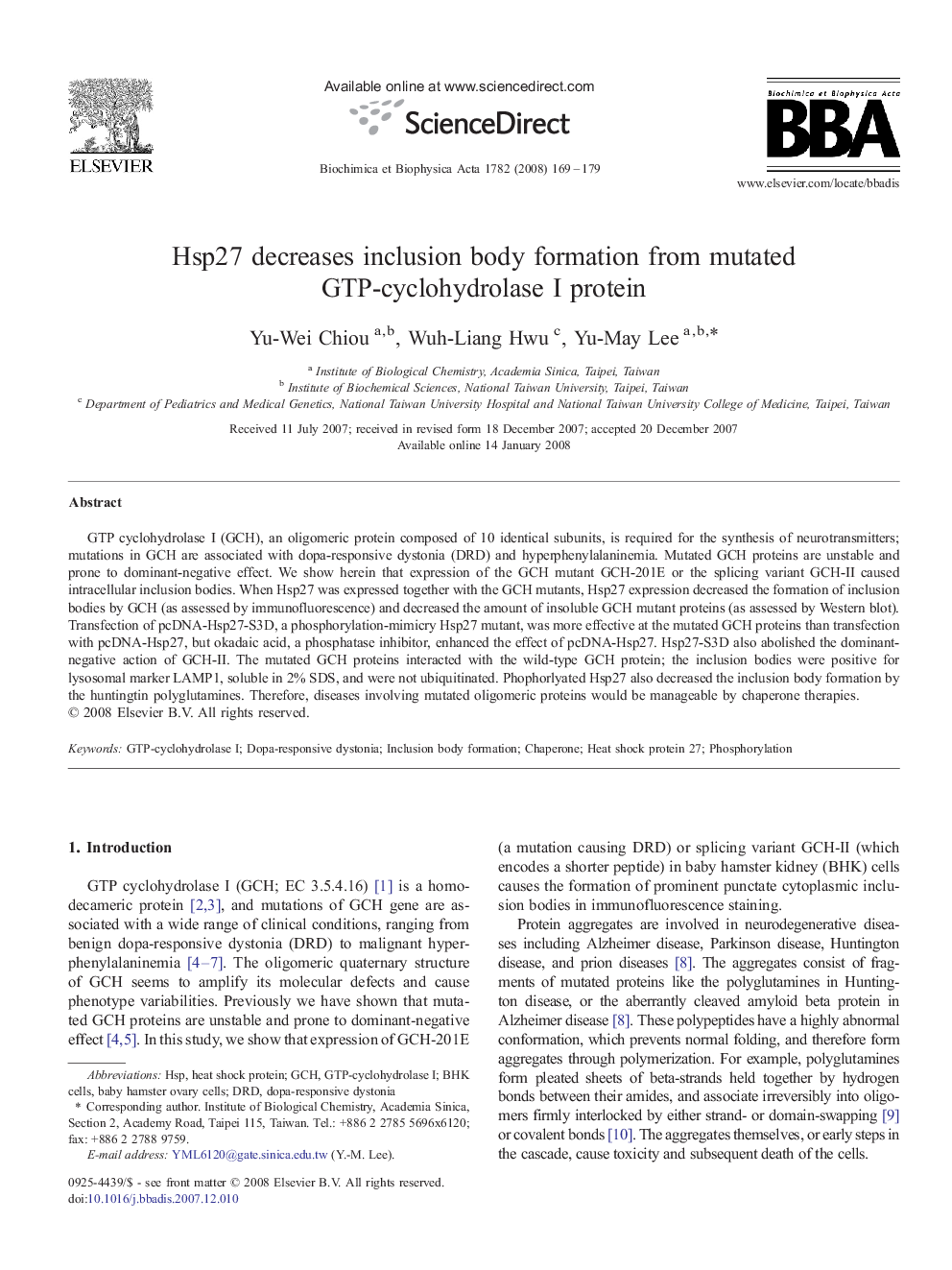| Article ID | Journal | Published Year | Pages | File Type |
|---|---|---|---|---|
| 1905641 | Biochimica et Biophysica Acta (BBA) - Molecular Basis of Disease | 2008 | 11 Pages |
GTP cyclohydrolase I (GCH), an oligomeric protein composed of 10 identical subunits, is required for the synthesis of neurotransmitters; mutations in GCH are associated with dopa-responsive dystonia (DRD) and hyperphenylalaninemia. Mutated GCH proteins are unstable and prone to dominant-negative effect. We show herein that expression of the GCH mutant GCH-201E or the splicing variant GCH-II caused intracellular inclusion bodies. When Hsp27 was expressed together with the GCH mutants, Hsp27 expression decreased the formation of inclusion bodies by GCH (as assessed by immunofluorescence) and decreased the amount of insoluble GCH mutant proteins (as assessed by Western blot). Transfection of pcDNA-Hsp27-S3D, a phosphorylation-mimicry Hsp27 mutant, was more effective at the mutated GCH proteins than transfection with pcDNA-Hsp27, but okadaic acid, a phosphatase inhibitor, enhanced the effect of pcDNA-Hsp27. Hsp27-S3D also abolished the dominant-negative action of GCH-II. The mutated GCH proteins interacted with the wild-type GCH protein; the inclusion bodies were positive for lysosomal marker LAMP1, soluble in 2% SDS, and were not ubiquitinated. Phophorlyated Hsp27 also decreased the inclusion body formation by the huntingtin polyglutamines. Therefore, diseases involving mutated oligomeric proteins would be manageable by chaperone therapies.
